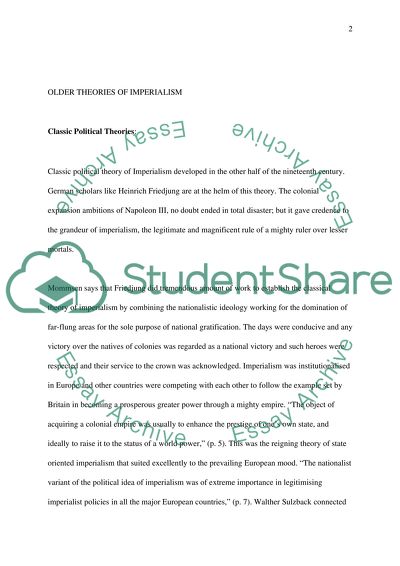Cite this document
(The Notion of Imperialism Case Study Example | Topics and Well Written Essays - 2000 words - 1, n.d.)
The Notion of Imperialism Case Study Example | Topics and Well Written Essays - 2000 words - 1. Retrieved from https://studentshare.org/politics/1535529-theories-of-imperalism
The Notion of Imperialism Case Study Example | Topics and Well Written Essays - 2000 words - 1. Retrieved from https://studentshare.org/politics/1535529-theories-of-imperalism
(The Notion of Imperialism Case Study Example | Topics and Well Written Essays - 2000 Words - 1)
The Notion of Imperialism Case Study Example | Topics and Well Written Essays - 2000 Words - 1. https://studentshare.org/politics/1535529-theories-of-imperalism.
The Notion of Imperialism Case Study Example | Topics and Well Written Essays - 2000 Words - 1. https://studentshare.org/politics/1535529-theories-of-imperalism.
“The Notion of Imperialism Case Study Example | Topics and Well Written Essays - 2000 Words - 1”. https://studentshare.org/politics/1535529-theories-of-imperalism.


